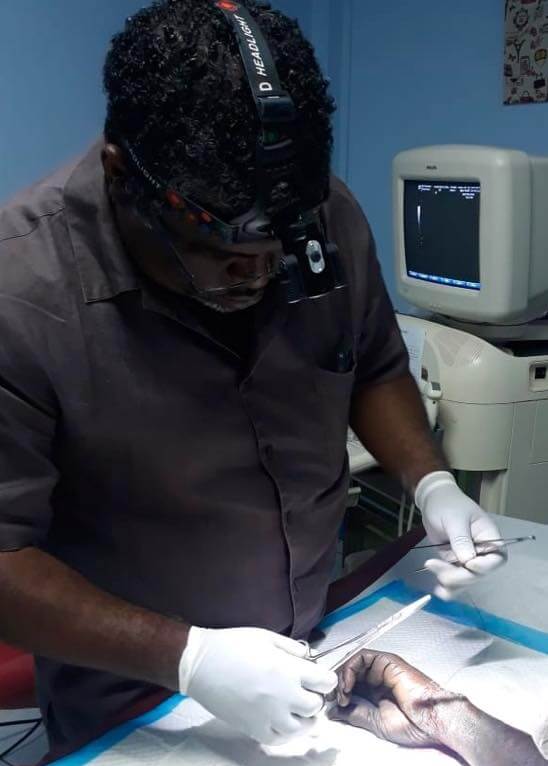MENOR SURGERY
Part of the medicine that deals with the cure of diseases, malformations, trauma, etc., through manual or instrumental operations
However, a surgical intervention, even if it is minor and with local anesthesia, implies risks that should not be underestimated, so there are certain contraindications and particular considerations that your doctor will evaluate before performing surgery.
 WHAT IS MINOR SURGERY?
WHAT IS MINOR SURGERY?
Minor surgery deals with those simple surgical procedures, which are performed under local anesthesia, on an outpatient basis and that do not require special post operative care.
It is essential to perform a correct surgical technique and an adequate indication, offering clear, concise and complete information to the patient, which will be reflected with informed consent.

Currently, Primary Care nurses and family, community and emergency medical specialists, both in daily and emergency consultations, have to attend patients with cutaneous wounds of greater or lesser complexity, which require surgical repair, being It is essential to be able to correctly carry out the most appropriate treatment to have a high knowledge of the assessment of surgical wounds to classify them according to the severity or not of these wounds or other injuries, and proceed according to the most appropriate treatment techniques, correct selection of materials and The types of sutures.

 WHAT IS MEANT BY AMBULATORY SURGERY
WHAT IS MEANT BY AMBULATORY SURGERY
Outpatient surgery is understood as those scheduled surgeries (non-emergencies) performed on patients who are hospitalized, operated and are discharged home the same day.
This type of surgery has increased considerably in recent decades, especially in developed countries and already accounts for approximately 70% of all elective surgeries.
In addition to the operation itself, this is a work and health care modality that has advantages for patients such as efficient and expedited care, recovery in a known environment (their home), less alteration of the environment and family life, fewer postoperative complications (pain, wound infection, thrombosis, among others), earlier return to normal life and, in general, lower care costs
 HOW IS THE POST SURGERY?
HOW IS THE POST SURGERY?
After the usual recovery, the patient already wanders, eats food and is in minimal pain or discomfort, retiring to his home. According to what is stipulated by the medical professional, the patient will be summoned after a few days to return to the institution to carry out the necessary controls and thus obtain the definitive discharge.
List of services we offer:
HAVING AN OPERATION CAN CAUSE ANXIETY
Knowing what to expect will help you feel calmer and help you recover faster.
Our health care group will explain the details of the surgery and answer any questions you may have.
The more you know about your operation, the better prepared you will be to participate in it and feel better.